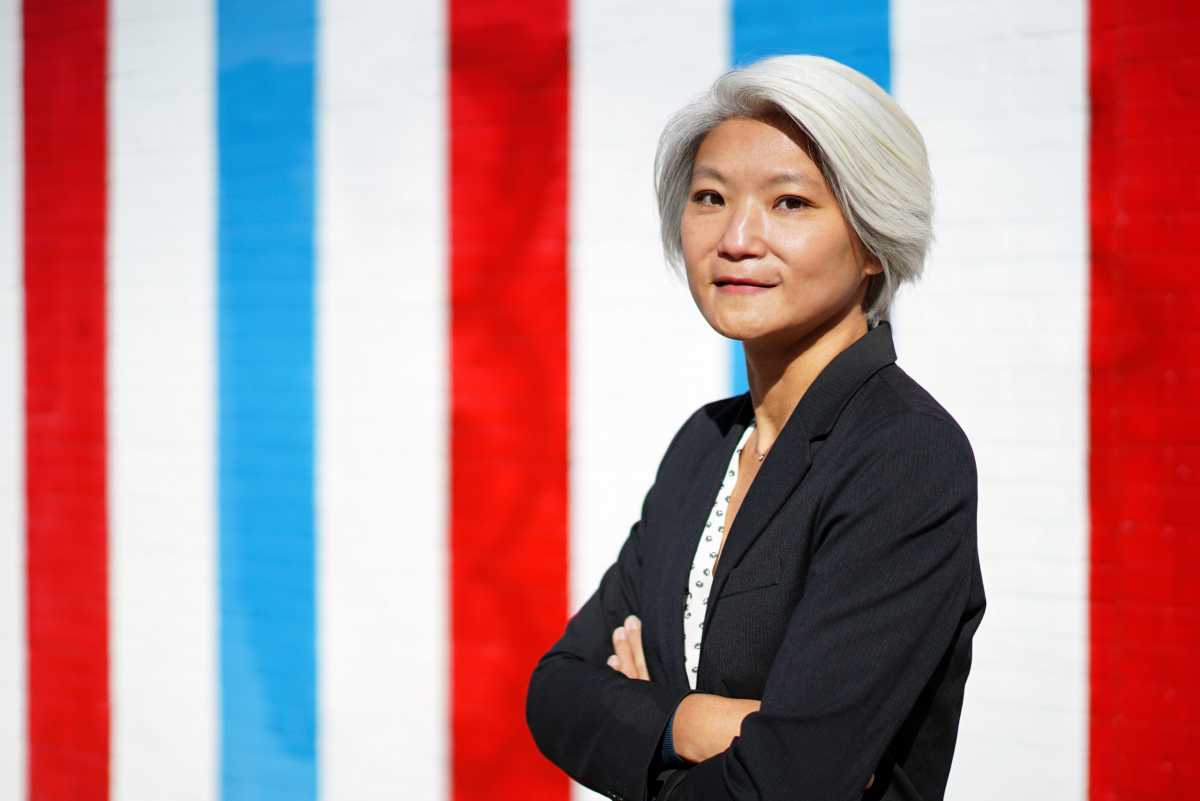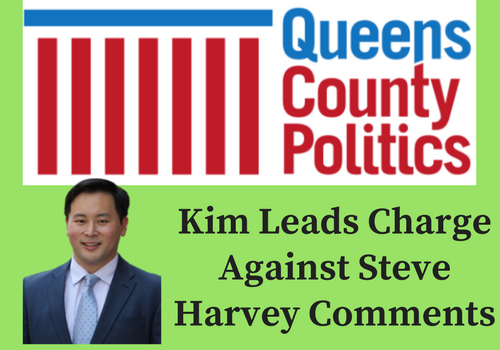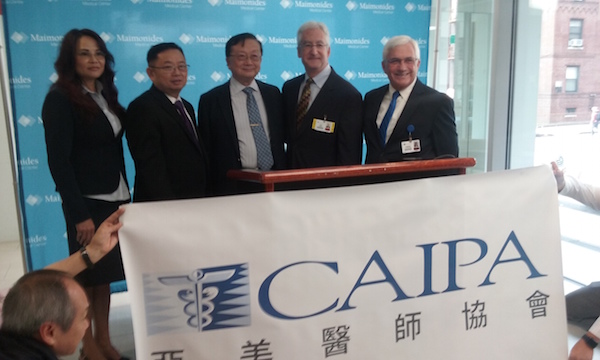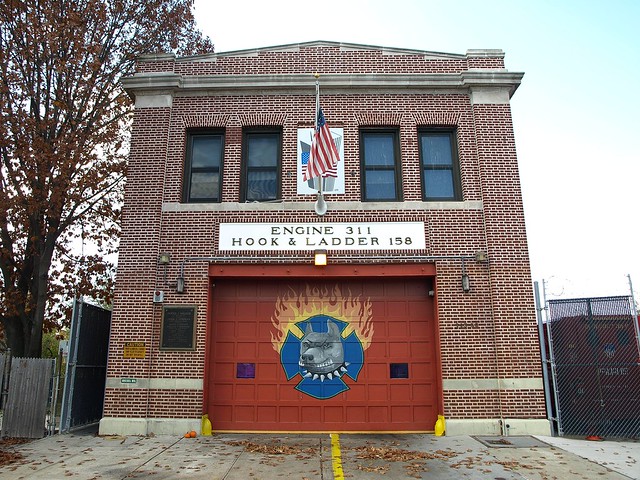Iwen Chu, the chief of staff for long-time south Brooklyn Assemblyman Peter Abbate, is running in the Democratic primary for a newly created state senate district to represent Brooklyn’s Chinatown in Albany.
Chu said she’s running primarily because the significant Asian American communities of Sunset Park, Bay Ridge, Bensonhurst and Dyker Heights have gone without representation in the state capital for far too long.
“This community has been historically underrepresented,” Chu said. “Until now, we don’t have any Asian representative in the state government level.”
The new state Senate District 27 was officially signed into law last month by Gov. Kathy Hochul as part of the national redistricting that follows the U.S. Census every 10 years. The new district encompasses parts of Sunset Park, Bay Ridge, Dyker Heights, Bensonhurst, Windsor Terrace and Kennsington. It’ll be carved from the current districts of state Senators Andrew Gounardes, Simcha Felder, Zellnor Myrie, Diane Savino, and Kevin Parker.
It’s important that South Brooklyn’s Asian American community has someone from the same background in the state legislature, Chu said, especially because much of the area still primarily speaks Chinese.
“The Asian community still wants to see someone who can understand them directly,” Chu said. “And I speak their language. I can provide a sense of security for them. They can talk to me directly. That’s why I saw this redistricting, it’s definitely an opportunity for the Asian community and also for Brooklyn, to have someone who can understand them and represent that in a state government level.”
After a decade as Abbate’s chief of staff, Chu said she already has plenty of experience advocating on behalf of Brooklyn’s Chinatown. But Abbate himself took things a step further, telling PoliticsNY Chu has been instrumental in communicating with all his constituents, not just the Asian American community.
“She’s worked for me for 10 years. She knows the business,” Abbate said. “She’s my right hand person for those ten years, especially in the Asian community, But in those 10 years, she branched out from the Asian community and represented me in the whole district. And (she) knows the issues. More importantly, she knows the community she’s going to be representing.”
Chu grew up in Taiwan and came to New York as an international student when she was 27 to pursue a Masters degree in sociology at CUNY’s Brooklyn College. After graduating, Chu became a local reporter for the World Journal – the largest Chinese language daily newspaper in the United States – and applied for U.S. citizenship.
When she was a reporter in the mid 2000s, Chu said, city and state agencies were much less likely to provide information in languages other than English. So, it was her job as a Chinese speaking journalist to serve as a conduit between the community and government agencies.
“I (would be) providing constituent service to them,” Chu said. “I would reach out to the city agencies. I would reach out to the state government and ask for an answer, ask for a solution. And then I bring it back to the community and I would write about it. So that I can educate the immigrant community to understand okay, when you face this kind of situation, where you can go help. And here is the information.”
Chu said the main issues she’s campaigning on are immigrant rights, public safety and education. According to Chu, one of the biggest barriers immigrants face when trying to build a life in New York City is navigating language barriers that still exist in the delivery of city services.
“They try to navigate the social system, the education system, the health system, with the language barrier and limitation,” Chu said. “There’s a lot missing there. I have a friend who was a high school math teacher in China, and he immigrated here. But because of the language barrier, he can only work in a restaurant.”
Chu said she also supports progressive policies like universal child care and A New Deal for CUNY, which she believes can also help immigrant families be upwardly mobile.
When it comes to improving public safety – especially amid the rise in anti-Asian hate crimes over the past couple of years, Chu said she supports some rollbacks to the bail reforms passed in 2019 that eliminated cash bail for most misdemeanors and non-violent felonies. These include giving judges more discretion and making certain crimes bail eligible again.
While Chu appears to be the only major candidate running to represent the new district so far, she said she believes others will soon throw their hats in the ring.
“I believe I will have a primary,” she said. “It’s an open seat, it’s not a surprise to see that.”









